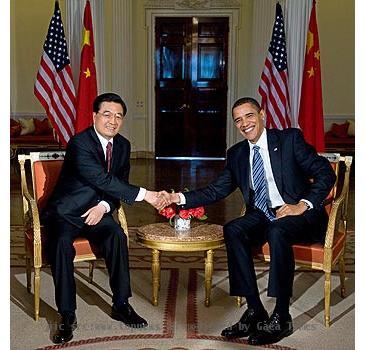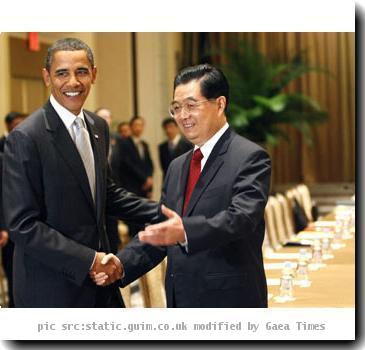Work in China’s devastated earthquake zone switches from rescue to rebuilding
By Anita Chang, APSunday, April 18, 2010
Work in China’s quake zone switches to rebuilding
JIEGU, China — Heavy construction machinery and trucks carrying aid to earthquake survivors clogged streets Monday morning as this shattered town in remote western China turned to rebuilding, and search teams and other rescuers left.
Thousands of Tibetan Buddhist monks stayed in Jiegu, however, picking at rubble with shovels, performing funeral rites and throwing food from the backs of trucks.
Bedraggled survivors streamed from their tents and chased the trucks, the women scooping bread rolls and packets of instant noodles into the aprons of their traditional fur-lined robes.
Army trucks sprayed water on roads to reduce dust, and mobile toilets arrived — just in time as the spread of diseases was becoming a concern after more than five days without running water.
Classes resumed at Yushi No. 3 Elementary School, with hundreds of students taking lessons in classrooms set up in tents. Most wore the blue-and-white school uniforms they had on when their classrooms collapsed on Wednesday.
The quake killed 1,706 people and injured 12,128. The official Xinhua News Agency reported that at least 66 children and 10 teachers died, but that total was likely to climb as more remained missing.
The children trooped into the tents filled with small wooden desks and chairs salvaged from the rubble.
“Confidence! Hope!” the children chanted, led by volunteers from Beijing who had organized the temporary classrooms and were planning to build permanent ones.
“On the one hand students are coming back to resume classes. On the other hand, we are giving the students some psychological treatment after the disaster. We are trying to help them forget the disaster and not feel scared anymore,” said Danzeng Jiangcuo, a sixth-grade math teacher.
“Most of the students are living with their families and relatives. Every morning we notify them that classes start at 9 a.m. and finish at noon,” he said.
Painful reminders of the disaster were everywhere. Just behind the tent classrooms, hundreds of monks in crimson robes sat on the playground singing sutras, or prayers, for about a dozen earthquake victims whose bodies were stacked in the back of a nearby truck.
Their mournful voices mixed with the sounds of the children reciting their lessons.
“It’s Buddhist nature to help those in need,” said Cijia, a 21-year-old Buddhist student from a school in neighboring Sichuan province 300 kilometers (185 miles) away.
He said monks have been performing funeral rites twice a day, morning and night.
The 1,200 monks from his school have no income and paid 500 yuan to 600 yuan ($ 73 to $87) each out of their pocket money to volunteer in Jiegu.
The surge in aid came as President Hu Jintao, who cut short an official trip to South America to deal with the disaster, arrived Sunday to inspect relief work at the remote Tibetan region where residents have frequently chafed under Chinese rule.
He visited displaced families living in tents and promised that the Communist Party and the government was doing everything they could. Tibetan anger over political and religious restrictions and perceived economic exploitation by the majority Han Chinese have sometimes erupted in violence.
Government-issued blue tents that were sparsely dotted around town in recent days could be seen in abundance, with a horse racing track turned refugee camp, the largest of several tent cities in Jiegu.
Tags: Asia, China, East Asia, Emergency Management, Greater China, Hu Jintao, Jiegu, Municipal Governments, Search And Rescue Efforts

